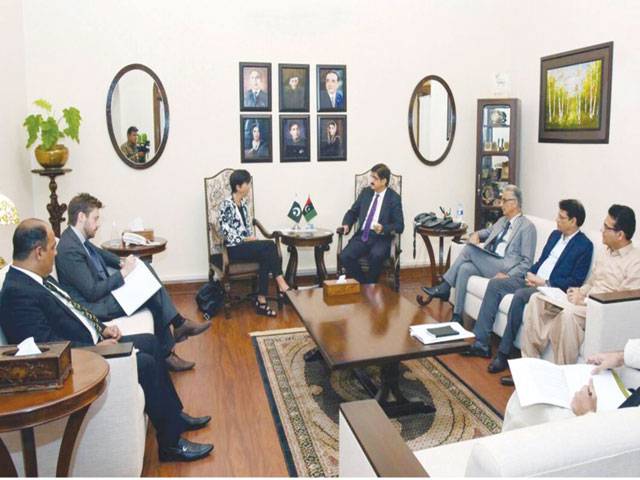KARACHI - Sindh Chief Minister Syed Murad Ali Shah has said that his government has declared emergency in education sector and have taken some drastic steps which yielding positive results.
This he said while presiding over a meeting with a delegation of United Kingdom Department for International Development (DFID), led by its head Ms Joanna Reid here at the CM House on Friday. The meeting was attended by Education Minister Jam Mehtab Dahar, Principal Secretary to CM Sohail Rajput, Secretary Education Aziz Uqaili and chief of RSU Faisal Uqaili.
The chief minister said that he was giving special attention to education and health sectors and in his first speech in the provincial assembly as a new chief minister.
“Since a direction has been set for both the sectors under which administration and teaching cadres have been separated, school specific transfer/postings are made, audit system has also been developed and special focus was being given for teachers training to build their capacity,” he added.
He said that fiduciary reviews ratings of multilateral funding agencies for education sectors projects are getting better in recognition of continuous efforts towards improved financial management and internal controls. “We have established an internal audit in Finance as well as school education just to strength financial control and adherence to government rules and regulations,” he said and added SMS-based complaint system is also in place.
Minister Education Jam Mehtab Dahar said that Directorate of Monitoring & Evaluation has been established. It is fully functional throughout Sindh with live IT-based dashboard, independent monitors, data centers and biometric system for monitoring over 45,000 schools from teachers’ attendance to all other key indicators. He added that human resource Management Information System (MIS) has also been established. The school management committees have also been made functional.
Secretary Education Aziz Uqaili discussing the areas where assistance was required said that there was need of improving the existing school infrastructure through construction of additional class rooms and up-gradation of primary schools to secondary. He added that some basic facilities such as toilets, drinking water, boundary walls and solar-power systems were also required in most of the schools.
The secretary said that Early Childhood Care and Education (ECCE) was another area where DFID could extend its assistance. The Sindh government has a ECCE policy under which Regional Resource Centers and classes in all public and private schools are to to be established and DFID could extend helping hand.
The chief minister said that the teachers recruitment policy of the government is transparent. The teaching staff from 2008 has been appointed through NTS and now we have decided to recruit non-teaching staff through NTS also, he said.
The DFID head appreciated the efforts of the Sindh government for improvement of education and assured them her support to further improve and strengthen the education






